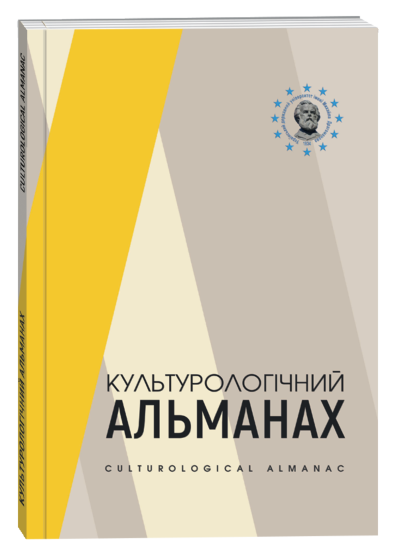THE IMAGE OF THE SOVIET EDUCATOR DURING DE-STALINIZATION (1953–1964) IN THE WORKS OF OLES HONCHAR
DOI:
https://doi.org/10.31392/cult.alm.2023.2.13Keywords:
Ukrainian SSR, de-Stalinization, Oles Honchar, socialist realism, educators, everyday life, Ukrainian literature.Abstract
The article examines the representation of the image of a Soviet educator in the works of Oles Honchar during the de-Stalinization period (1953–1964). Based on an analysis of the author’s letters, diaries, and prose works, the study explores how Oles Honchar depicted and reflected on the role of educators in Soviet society during this transformative period. Through the analysis of his works, the article sheds light on the evolution of perception and portrayal of Soviet teachers at a time when the country underwent significant political and social changes after the death of Joseph Stalin. The image of the educator gradually changed from «Tavria» and «Perekop» to «The Cathedral». The evolution went from the portrayal of a canonical passionate teacher-revolutionary, agitator, and fervent eradicator of illiteracy to an ordinary and almost unnoticed functionary in «Tronka». Subsequently, the changes reach their culmination in the image of the educator as a defender of national traditions, treasures, and spiritual wealth in «The Cathedral». In the works of this period, there are no teachers who could be considered vivid personalities; all educators, regardless of changes in the system, remain functional figures in the author’s perception. However, in the majority of Oles Honchar’s works during these years, the educator remains a measure of morality and integrity, a defender of traditional Ukrainian values. Considering the content of Oles Honchar’s diaries, it is highly likely that he underwent similar transformations as a citizen and an individual during this period. The obtained results contribute to a better understanding of the cultural and intellectual shifts that took place in this decisive period of Soviet history.
References
(1999) Тернистим шляхом до храму: Олесь Гончар в суспільно-політичному житті України 60–80-х рр. XX ст. Київ: Рідний край. 304 с. 2. Галич В. (2004) Олесь Гончар – журналіст, публіцист, редактор: еволюція творчої майстерності. Київ: Наук. думка. 816 с.
Гончар О. (1987) Твори: В 7-и т. Київ: Дніпро. Т. 2. 717 с.
Гончар О. (1987) Твори: В 7-и т. Київ: Дніпро. Т. 3. 559 с.
Гончар О. (1987) Твори: В 7-и т. Київ: Дніпро. Т. 5. 487 с.
Гончар О. (1992) Собор. Київ: Веселка. 256 с.
Гончар О. (2002) Щоденник: У 3 т. (1943–1967). Київ: Веселка. Т. 1. 455 с.
Гончар О. (2003) Щоденник: У 3 т. Київ: Веселка. (1968–1983). Т. 2. 607 с.
Гончар О. (2008) Листи. Київ: український письменник. 431 с.
Гоян Я. (2003) Собор української душі. Київ: Веселка. 62 с.
Лук’яненко О. (2012) Методолого-теоретичні засади дослідження освітянського повсякдення доби «відлиги». Софія:«Бял ГPAД–БГ». С. 3–6.
ЦДАМЛМ України. Ф. 590, оп. 1, спр. 582. Арк. 210.








